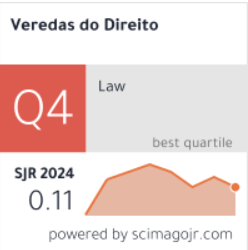TAX MORALE AS A PILLAR OF GOOD GOVERNANCE: AN ANALYSIS OF PERCEIVED FAIRNESS, TAX SYSTEM, AND TRUST IN GOVERNMENT
DOI:
https://doi.org/10.18623/rvd.v22.n2.3207Keywords:
Tax System, Tax Morale, Trust in Government, Tax Compliance, SDG16Abstract
Objective: This study looks at why people pay taxes, focusing on fairness, the tax system, and trust in the government. It aims to find out what makes people follow tax laws, which helps with Sustainable Development Goal 16, about peaceful, fair, and strong organizations. Theoretical Framework: This research uses the Theory of Planned Behavior to understand taxpayer behavior. The theory says that beliefs, social norms, and control influence actions like tax compliance. Relating to SDG 16, the study shows that fair and transparent institutions are key to effective governance. Method: This study used a quantitative approach to see how fairness and the tax system affect how willing future taxpayers are to pay taxes. It also looked at how much trust in the government matters. Result and Discussion: The study reveals that the perceived fairness of the tax system and its specific rules significantly impact people's willingness to pay taxes. Trust in the government can not moderate the connection between perceived fairness and Tax System on tax morale. Research Implications: This study helps us better understand what makes people willing to pay taxes. It shows that it's important for the tax system to seem fair and open, and for people to trust the government, to get more people to pay their taxes. Originality/Value:This study explains what makes future taxpayers in Indonesia willing to pay taxes. The results suggest ways for policymakers to improve tax systems and increase public trust, which is key to achieving SDG 16's goals for good governance.
References
Acheampong, O., Debrah, O., & Yeboah, I. O. (2016). An Assessment of Tax Compliance Level of Small Enterprises in Ghana. European Journal of Business and Management, 8(12), 81–89.
Amaning, N., Anim, R. O., Kyere, A., Kwakye, G., & Abina, S. (2021). Tax Compliance among Ghanaian SMEs: How impactful is Taxpayer Education? International Journal of Academic Research in Accounting Finance and Management Sciences, 10(4), 40–58. https://doi.org/10.6007/IJARAFMS
Betu, K. W., & Baso, S. P. (2023). Tax rates, tax socialization, and tax compliance of MSMEs: Patriotism as a moderating variable. Journal of Enterprise and Development (JED), 5(2), 436–456.
Bird, R., & Davis-Nozemack, K. (2018). Tax Avoidance as a Sustainability Problem. Journal of Business Ethics, 151(4), 1009–1025. https://doi.org/10.1007/s10551-016-3162-2
Biru, A. M. (2020). Factors That Affect Tax Compliance Behavior of Small and Medium Enterprises: Evidence from Nekemte City. European Journal of Business and Management, 12(19), 29–41. https://doi.org/10.7176/ejbm/12-19-04
Eloho, A. R., & Jerry, O. D. (2021). Self-Assessment, Tax audit, Tax knowledge and Tax Compliance a Structural Equation Model (SEM) Approach. International Journal of Research and Scientific Innovation, 08(08), 147–156. https://doi.org/10.51244/ijrsi.2021.8806
Eluro, D. C. (2018). Determinants of tax compliance under self-assessment: Evidence from Delta North senatorial zone. Research Journal of Finance and Accounting, 9(7), 95–108.
Hantono. (2021). The Influences of Tax Knowledge, Tax System, Self-Assessment System, and Tax Morale on Tax Compliance. Journal of Research in Business, Economics, and Education, 3(4), 108–125. http://e-journal.stie-kusumanegara.ac.id
Luthfiana, D. N., Andika, A., Najmudin, M., & Nugroho, J. P. (2023). Socialization of Taxation As A Moderating Variable In The Application of The Theory Of Planned Behavior To Taxpayer Compliance. Dinasti International Journal of Economics, Finance & Accounting, 4(3), 434–453. https://doi.org/10.38035/dijefa.v4i3.1872
Mohamad, M. (2014). Understanding Tax Morale and Tax Compliance of SMEs : A Case of Tax Practitioner. Journal of Contemporary Issues and Thought, 4, 177–192.
Mukhlis, I., Utomo, S. H., & Soesetio, Y. (2015). The Role of Taxation Education on Taxation Knowledge and Its Effect on Tax Fairness as well as Tax Compliance on Handicraft SMEs Sectors in Indonesia. International Journal of Financial Research, 6(4), 161–169. https://doi.org/10.5430/ijfr.v6n4p161
Nduruchi, G. M., Makokha, E. N., & Namusonge, G. S. (2017). Determinants of Tax Compliance Among Small and Medium Enterprises in Nakuru Central Business District, Kenya. European Journal of Business and Management, 9(18), 46–51.
Prihandini, W., Zuhri, M., & Jahja, A. S. (2019). Tax compliance and procedural fairness in SME. International Journal of Economics and Research, 10(4), 1–15. https://www.ijeronline.com/documents/volumes/2019/July - Aug 2019/ijer v10 i4 2019 ja (1b).pdf
Shaharuddin, N. S., Palil, M. R., Ramli, R., & Maelah, R. (2012). Sole Proprietorship And Tax Complianceintention In Self Assessment System: A Theory Of Planned Behavior Approach. International Journal of Business, Economics and Law, 1(July 2011), 34–42.
Twum, K. K., Amaniampong, M. K., Assabil, E. N., Adombire, M. A., Edisi, D., & Akuetteh, C. (2020). Tax Knowledge and Tax Compliance of Small and Medium Enterprise in Ghana. South East Asia. Journal of Contemporary Business, Economics and Law, 21(5), 222–231.
Vincent, O. (2021). Assessing SMEs tax non-compliance behaviour in Sub-Saharan Africa (SSA): An insight from Nigeria. Cogent Business and Management, 8(1), 1–24. https://doi.org/10.1080/23311975.2021.1938930
Downloads
Published
How to Cite
Issue
Section
License
I (we) submit this article which is original and unpublished, of my (our) own authorship, to the evaluation of the Veredas do Direito Journal, and agree that the related copyrights will become exclusive property of the Journal, being prohibited any partial or total copy in any other part or other printed or online communication vehicle dissociated from the Veredas do Direito Journal, without the necessary and prior authorization that should be requested in writing to Editor in Chief. I (we) also declare that there is no conflict of interest between the articles theme, the author (s) and enterprises, institutions or individuals.
I (we) recognize that the Veredas do Direito Journal is licensed under a CREATIVE COMMONS LICENSE.
Licença Creative Commons Attribution 3.0







